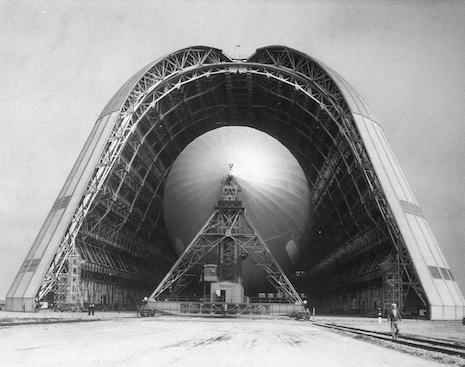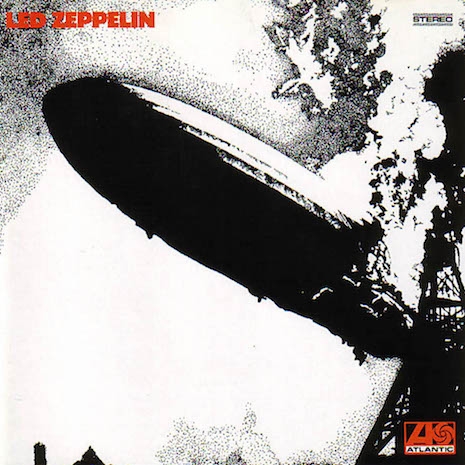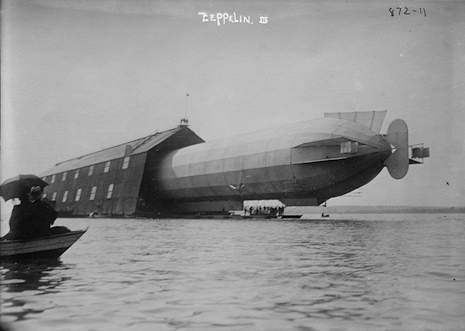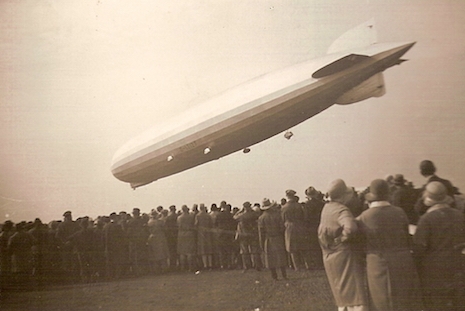
If there can be said to be a “golden age of the zeppelin,” it would be the 1920s and 1930s—a more precise span would be 1910 to 1937, but World War I interrupted widespread adoption of the primarily German technology. The year 1910, according to Wikipedia, marked the first time that zeppelins were flown commercially, by a company called Deutsche Luftschiffahrts-AG (DELAG). Over the next four years, DELAG would transport more than 10,000 fare-paying passengers on over 1,500 flights.
The end date of the period is pretty obvious: May 6, 1937, when 97 individuals decided to collaborate on some extremely expensive album cover design when a zeppelin known as the Hindenburg caught on fire in Manchester Township, New Jersey:

If you want to know more about the history of the zeppelin, you could almost certainly do worse than Zeppelin! Germany and the Airship, 1900–1939 by Guillaume de Syon.
As with any other form of airborne transport, there had to be a way of storing the vehicles overnight in such a way that they were protected from the elements, so along came the advent of the zeppelin hangar. These enormous structures were created to house the enormous rigid airships (yes, “rigid airship” is the name of the class of vehicles to which zeppelins belong), and pretty much any photograph of a zeppelin in its hangar is extremely likely to make observers think of sex.



This next one has been reduced to fit on our page, but if you click you can see a larger image:

There’s no hangar in this last pic, but it’s still a very nice phallic representation of a legendarily phallic object:

via Messy Nessy Chic
Previously on Dangerous Minds:
That awesome time in 1975 when there was a giant Alice Cooper balloon